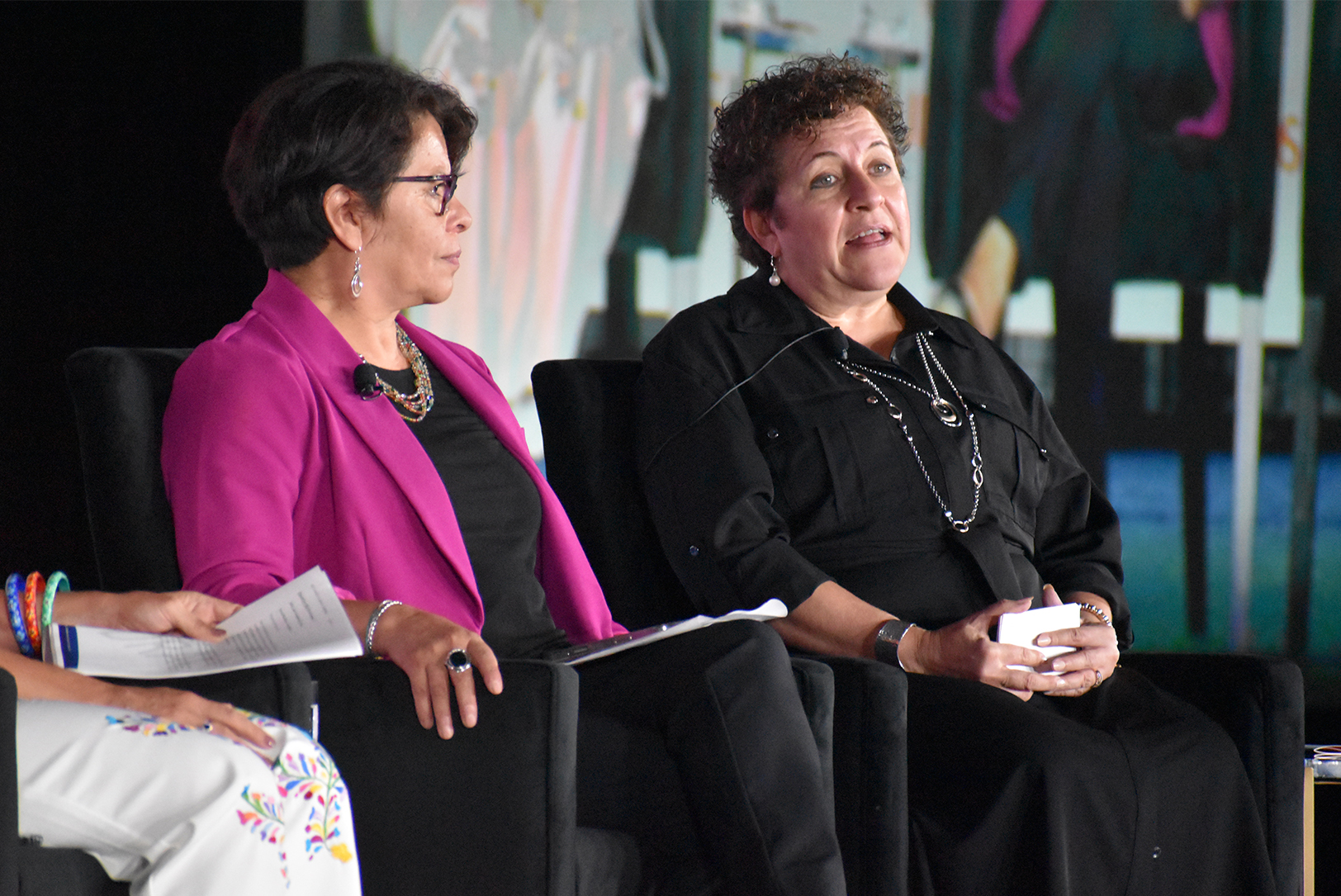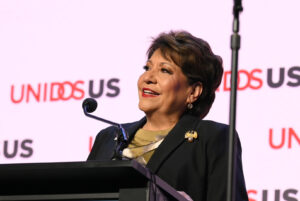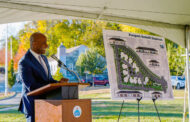Latino entrepreneurs are a powerful force in America’s economy, leaders emphasized Thursday from the UnidosUS stage, but systemic barriers continue to keep many from achieving financial freedom, they lamented.
“Our superpower is an entrepreneurial spirit,” said Ruby Azurdia-Lee, president and CEO of Comunidades Latinas Unidas en Servicio (CLUES), speaking during the UnidosUS Annual Conference’s closing plenary in Kansas City. “By engaging the community, by keeping an ear on the ground, we have been able to foster new programs, creating new micro business opportunities.”
Thursday’s session wrapped the UnidosUS Annual Conference, a three-day gathering of more than 1,500 Latino advocates, entrepreneurs, and change-makers from across the country.
This week’s event series carried special weight: it marked the 20th year of Janet Murguía, president and CEO of UnidosUS, leading the nation’s largest Latino civil rights and advocacy organization.
Murguía, a Kansas City native, called on the community to act with urgency: “We’ve faced hard times before and we’ve never given up. We’re not giving up now.”
Turning ideas into long-term assets
Azurdia-Lee discussed how her organization, CLUES, has worked to formalize and grow small businesses, from helping informal childcare providers become licensed to opening a new childcare hub that will allow Latina providers to expand from caring for three children to as many as 14.
“These solutions came from the community,” she said. “Opportunities to provide access and change come when we address barriers, whether it’s licensing requirements or the need for physical space.”
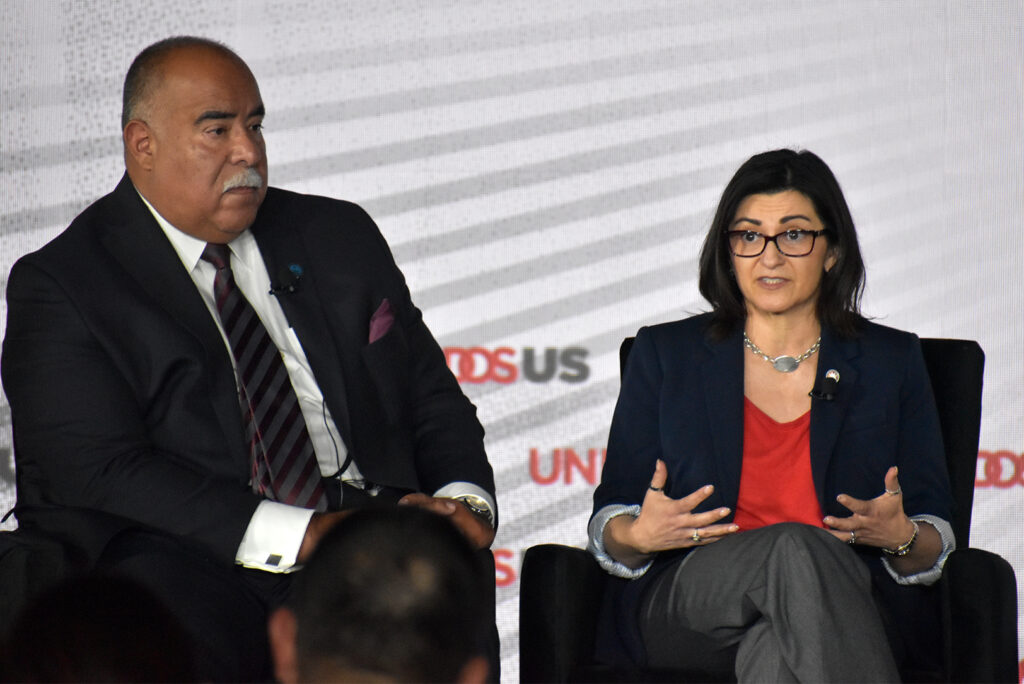
Marisa Calderón, president and CEO of Prosperity Now, right, speaks alongside Paul Granillo, president and CEO of the Inland Empire Economic Partnership, during the UnidosUS Annual Conference’s closing plenary in Kansas City; photo by Taylor Wilmore, Startland News
Marisa Calderón, president and CEO of Prosperity Now, urged Latino entrepreneurs to see their businesses as wealth-building tools.
“We don’t always organize them in a way that they can be sold like an asset if our family doesn’t want to take the lumber,” she said. “So, collectively as a community, there is some education that we need to engage in to make sure that we are earning assets other than ownership.”
Click here to check out a preview of UnidosUS’ “Economic Agenda for Prosperity,” a living roadmap for economic opportunity that is designed to evolve with our community’s data, insights, experiences and actions.
Building pathways to higher pay
Rocío Sáenz, international secretary-treasurer of SEIU, noted that Latino workers power industries from healthcare to airports, yet many are stuck in low-wage jobs that require multiple shifts to survive.
“They have to work two or three jobs, trying to figure out, ‘Are you going to pay for the groceries, are you going to pay the rent?’” she said.
Sáenz pointed to victories like California fast food workers winning $20 an hour as proof that organizing can raise industry-wide standards.
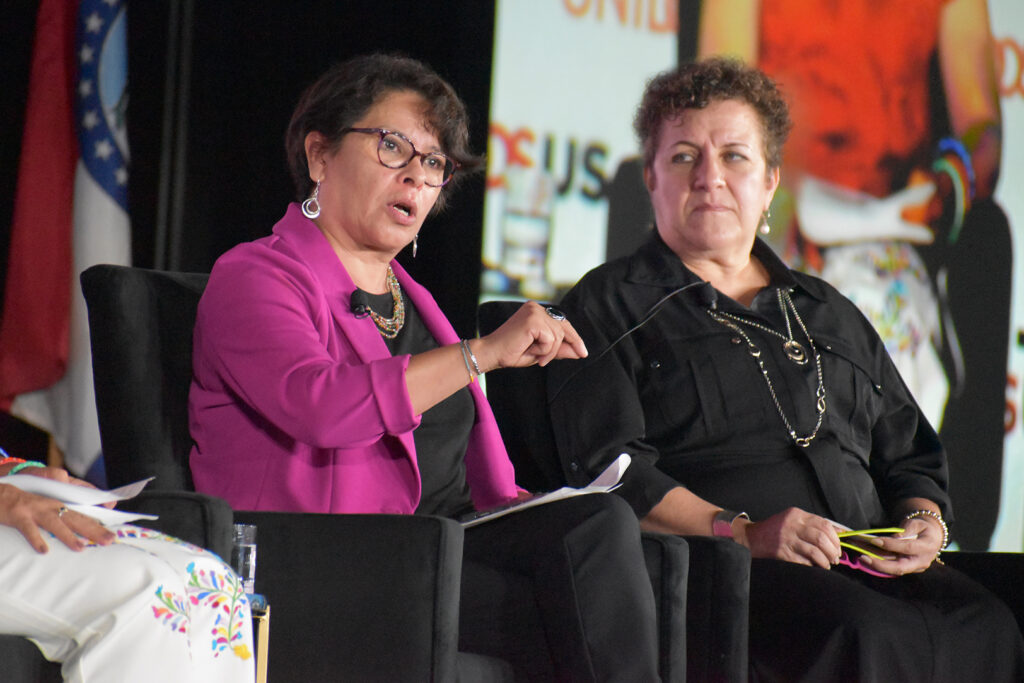
Rocío Sáenz, international secretary-treasurer of SEIU (Service Employees International Union), speaks alongside Ruby Azurdia-Lee, president and CEO of Comunidades Latinas Unidas en Servicio (CLUES), during the UnidosUS Annual Conference; photo by Taylor Wilmore, Startland News
Paul Granillo, president and CEO of the Inland Empire Economic Partnership, said more investment is needed to prepare Latinos for high-paying jobs in tech and advanced manufacturing.
“Underneath our economy is the innovation churn,” he said. “It is artificial intelligence, it is robotics, and we need to be training people for those jobs.”
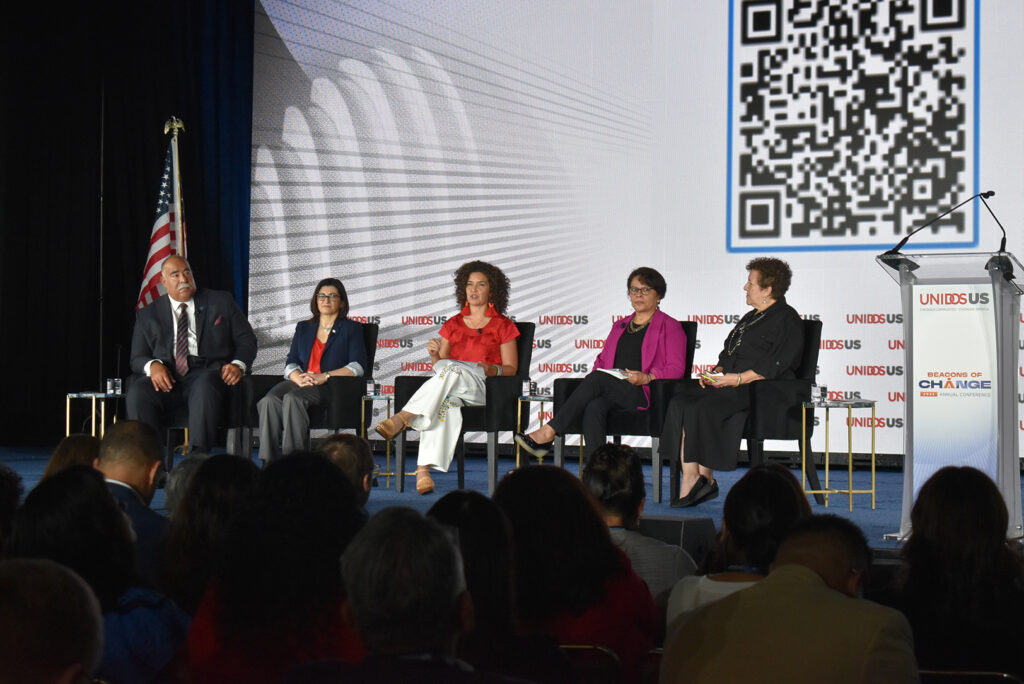
Janis Bowdler, senior fellow of economic issues at Equis Institute, discusses links between Latino entrepreneurs and economic prosperity during the UnidosUS Annual Conference’s closing plenary in Kansas City; photo by Taylor Wilmore, Startland News
Linking economic and civic power
Speakers also emphasized that economic gains must translate into political influence. Sáenz said such issues as affordable healthcare, retirement security, and job quality are powerful motivators for civic participation.
“This is our time to make full change for workers to be able to see a better future,” she said.
Calderón noted that financial stability creates “headspace” for people to get involved in decisions that affect their communities.
“When you have assets, you begin to have financial freedom. You then need to know that the city council is responsible for the potholes in your streets. If that matters to you, then that’s where you can invest your time,” she said.
Janis Bowdler, senior fellow of economic issues at Equis Institute, left the attendees in the plenary with a message to use their power actively.
“Latino economic power is so very real, and together, we can turn that power into a more just, inclusive and prosperous America,” she said.





